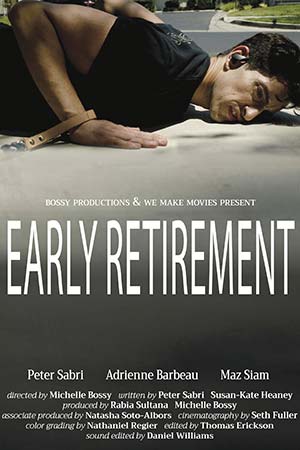Amphetamine (Chinese: 安非他命; Jyutping: An fei ta ming) is a film that defies the conventions of both LGBTQ+ cinema and Hong Kong’s mainstream filmmaking. Directed by Scud, this 2010 release stands out for its bold storytelling, stunning visuals, and complex emotional depth. At the heart of the film is the intense relationship between Kafka, played by Byron Pang, and Daniel, portrayed by Thomas Price. Kafka, a kung fu expert with a cutting-edge hairstyle, lives a life of poverty and rebellion, in stark contrast to Daniel’s polished and affluent lifestyle as a banker. Despite their differences—Kafka’s heterosexuality and drug addiction, and Daniel’s open homosexuality—the two men fall in love, creating a bond that is both tender and tumultuous.
The film is a visual feast, with director Scud and cinematographer Charlie Lam crafting beautiful, dreamlike sequences that blur the lines between reality, memory, and fantasy. The recurring motifs of water and angels are woven throughout the narrative, symbolizing Kafka’s longing for purity and redemption. These visual elements, combined with flashbacks and martial arts sequences, create an aesthetic that is as surreal as it is gripping.
However, Amphetamine doesn’t rely solely on its style to tell the story. The relationship between Kafka and Daniel is explored with emotional complexity, diving deep into Kafka’s traumatic past, including a violent sexual assault that haunts him throughout the film. Kafka’s introduction to drugs through his brother, a dealer, adds another layer to his character, as his addiction becomes both a form of escape and self-destruction. Despite his struggles, Daniel remains by Kafka’s side, offering love and support, even as Kafka’s addiction spirals out of control.
What sets Amphetamine apart from many LGBTQ+ films is its refusal to reduce the characters to their sexualities. The focus is not on the sexual aspect of the relationship but on the emotional bond between Kafka and Daniel. Their love is portrayed as universal, not defined by gender or societal labels. The chemistry between the two leads is undeniable, and their moments of joy, playfulness, and intimacy are genuinely moving.
That said, Amphetamine is not without its flaws. At times, the film’s focus on aesthetics—luxurious penthouses, bungee jumping, and sleek cars—can feel overindulgent. Some critics have noted that the film occasionally leans too heavily on its visual flair, detracting from the emotional gravity of the story. Still, these moments of superficiality do not overshadow the film’s core message of love, pain, and the search for redemption.
Byron Pang’s performance as Kafka is a standout, as he brings both vulnerability and strength to the role. His martial arts skills add physicality to his portrayal, making Kafka a character who is tough on the outside but deeply wounded on the inside. Thomas Price as Daniel provides the perfect counterbalance, offering stability and compassion in the face of Kafka’s chaotic life.
Amphetamine is not just a love story; it’s a reflection on how trauma and addiction can shape and ultimately destroy relationships. Scud’s decision to focus on these darker themes makes the film a poignant exploration of human vulnerability. The film’s final act, where Kafka’s unresolved trauma leads to a tragic conclusion, is both heartbreaking and inevitable.
For those looking for a film that blends emotional depth with stunning visuals, Amphetamine is a must-see. Its unconventional approach to storytelling and portrayal of LGBTQ+ relationships makes it a unique and memorable cinematic experience.
























